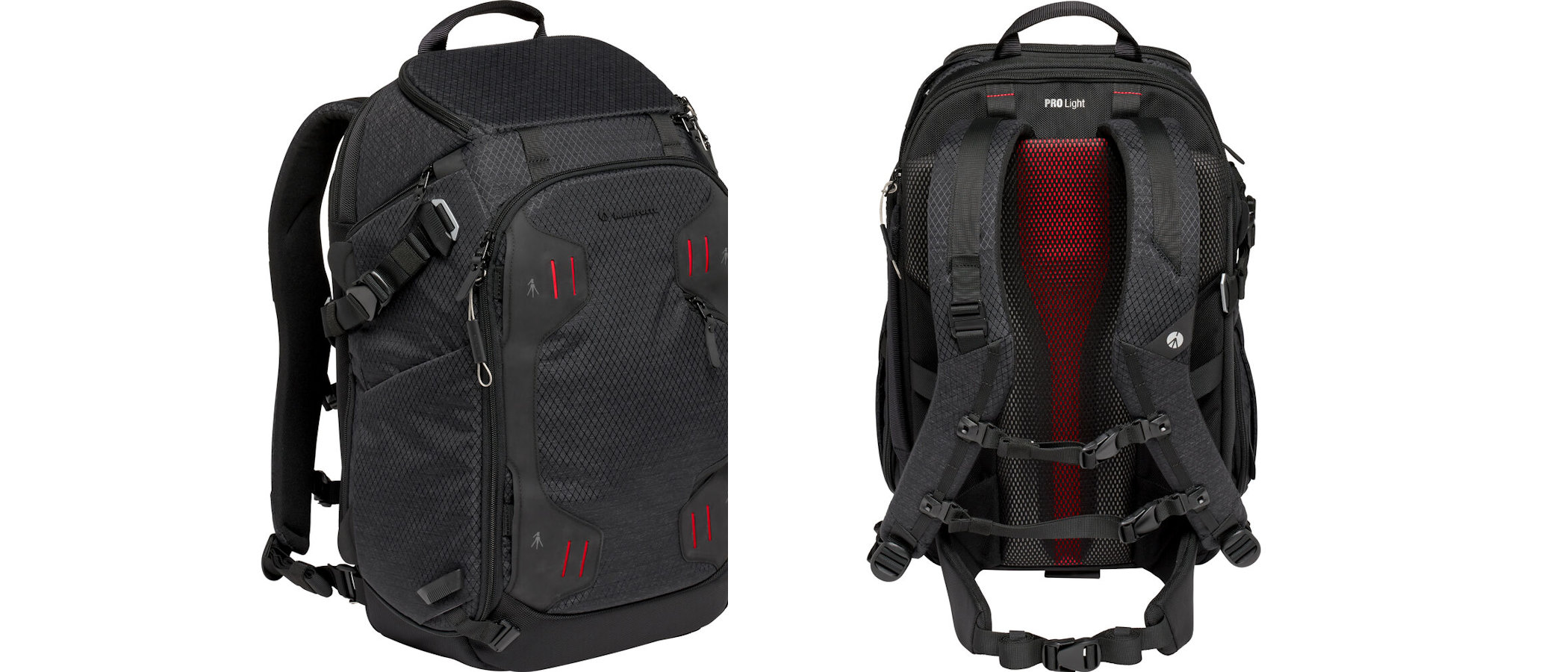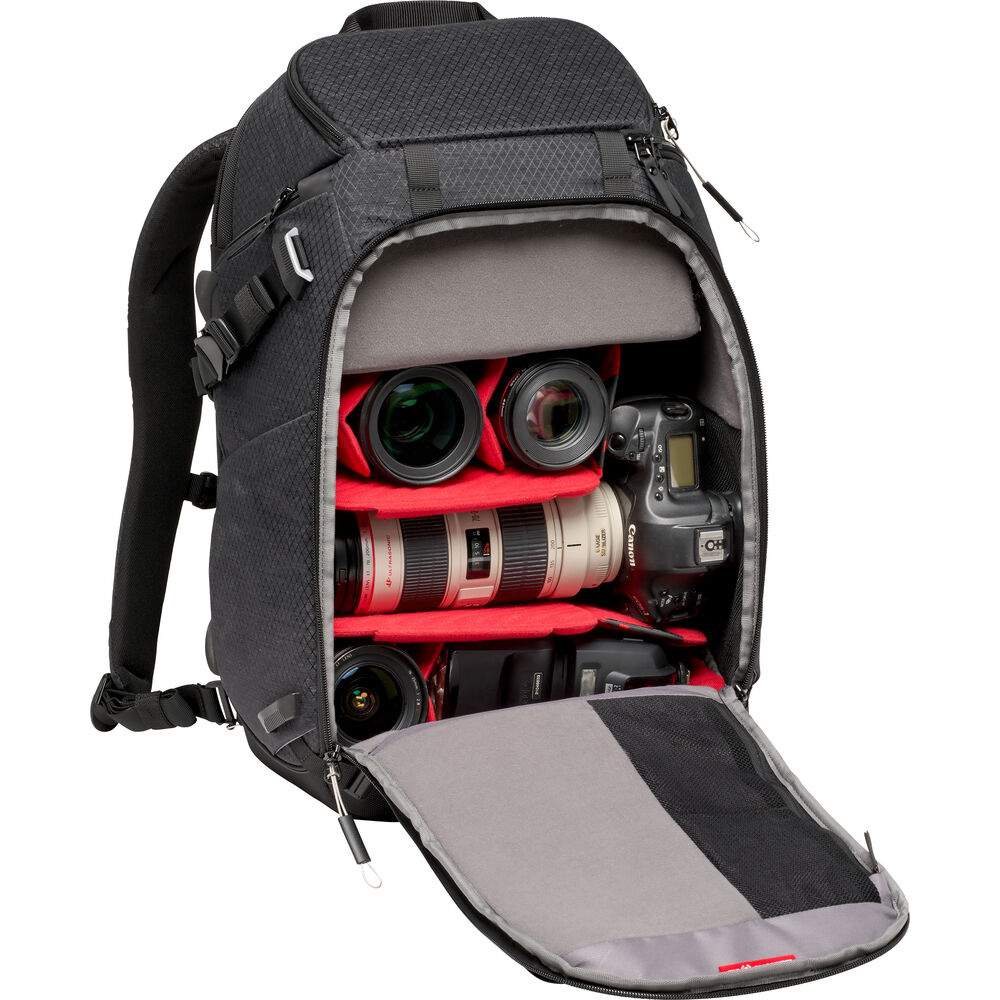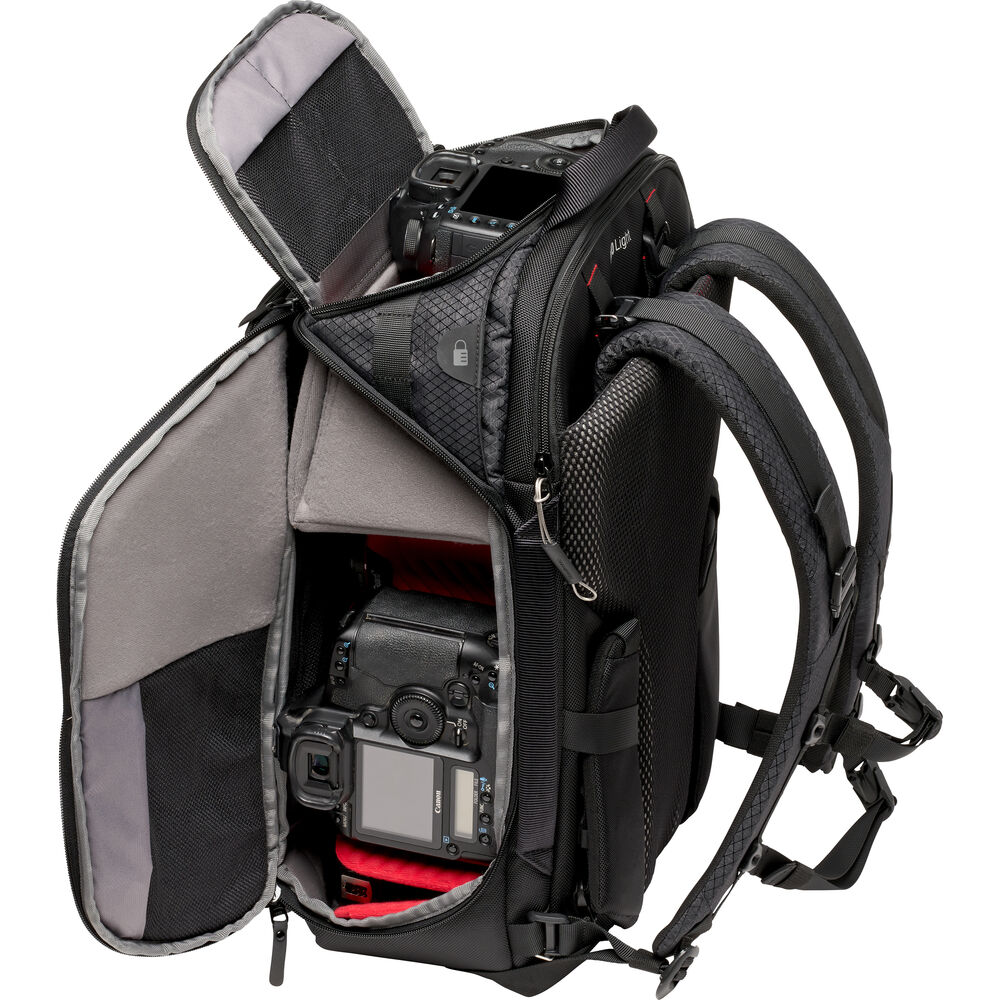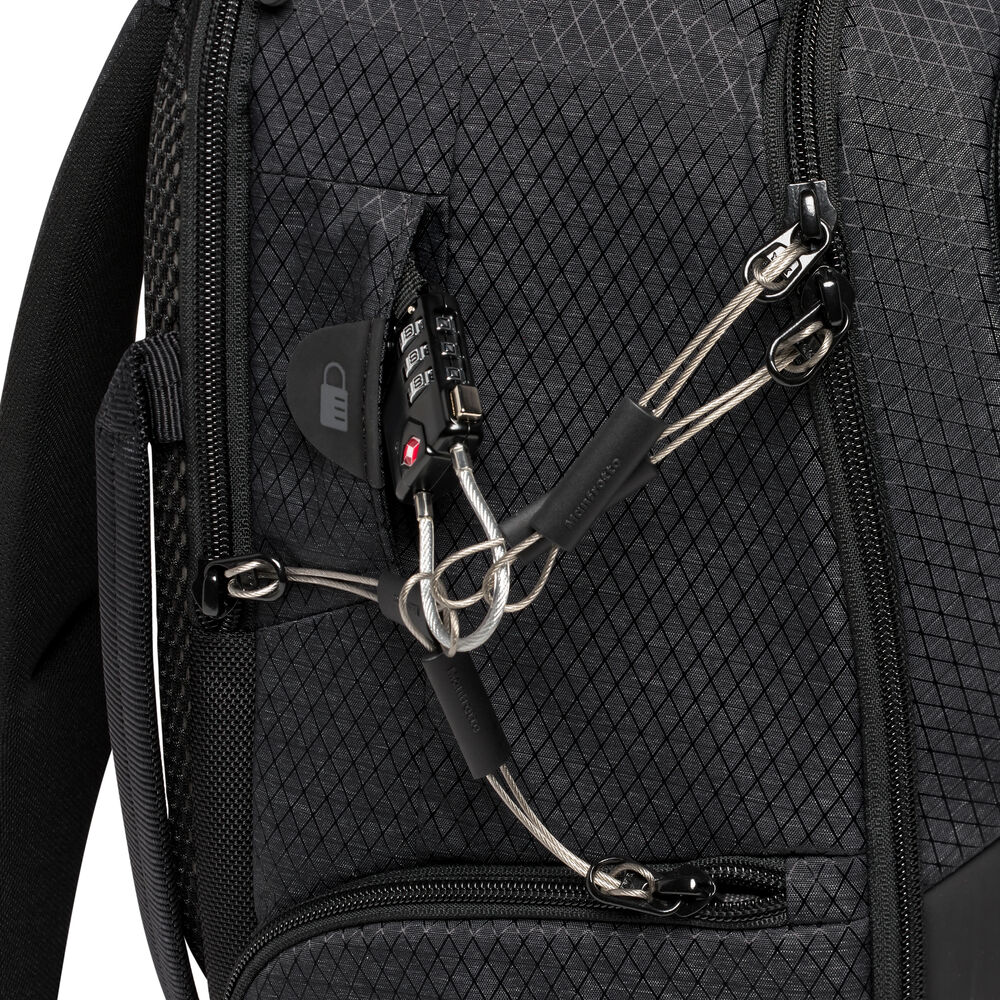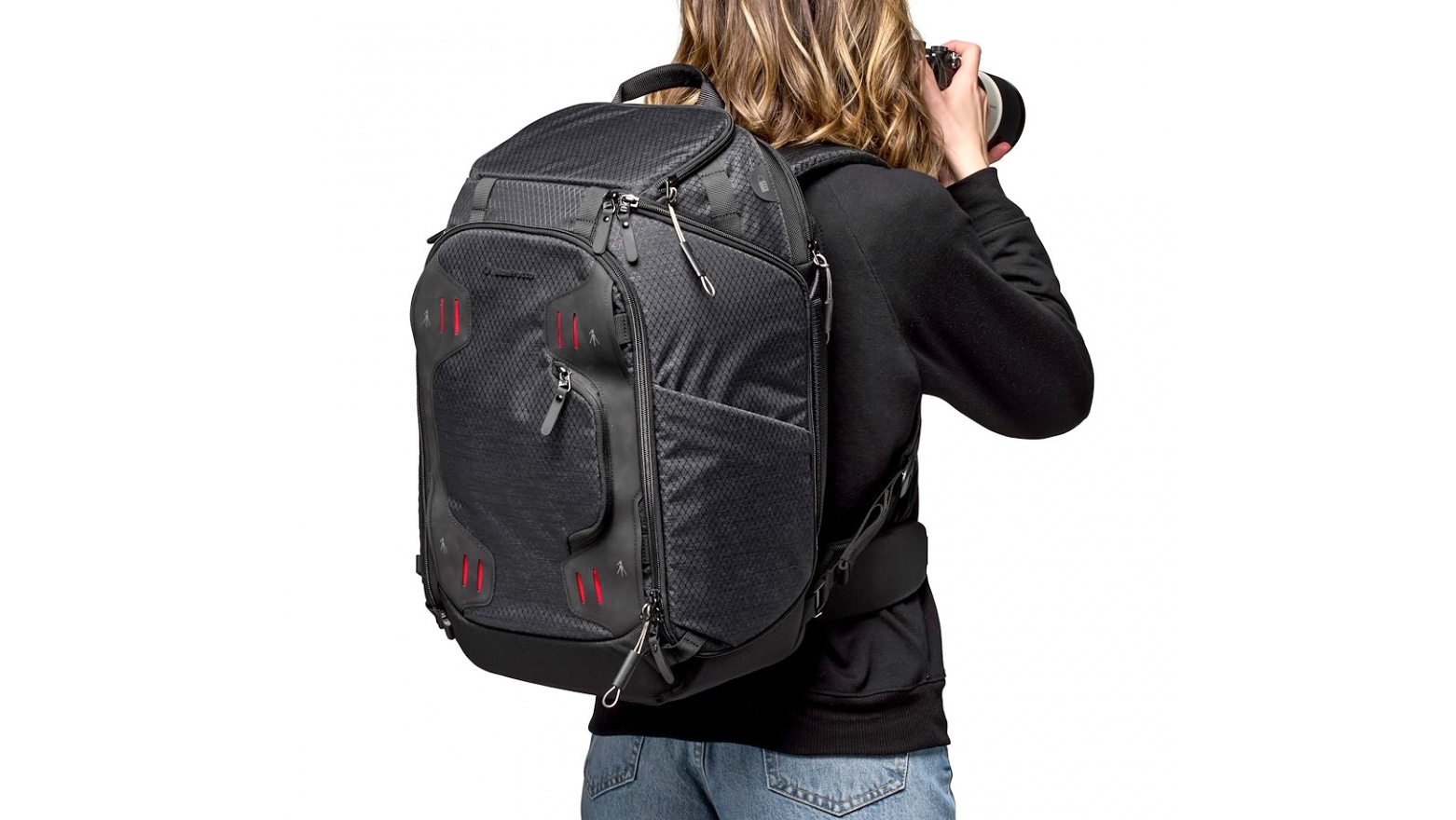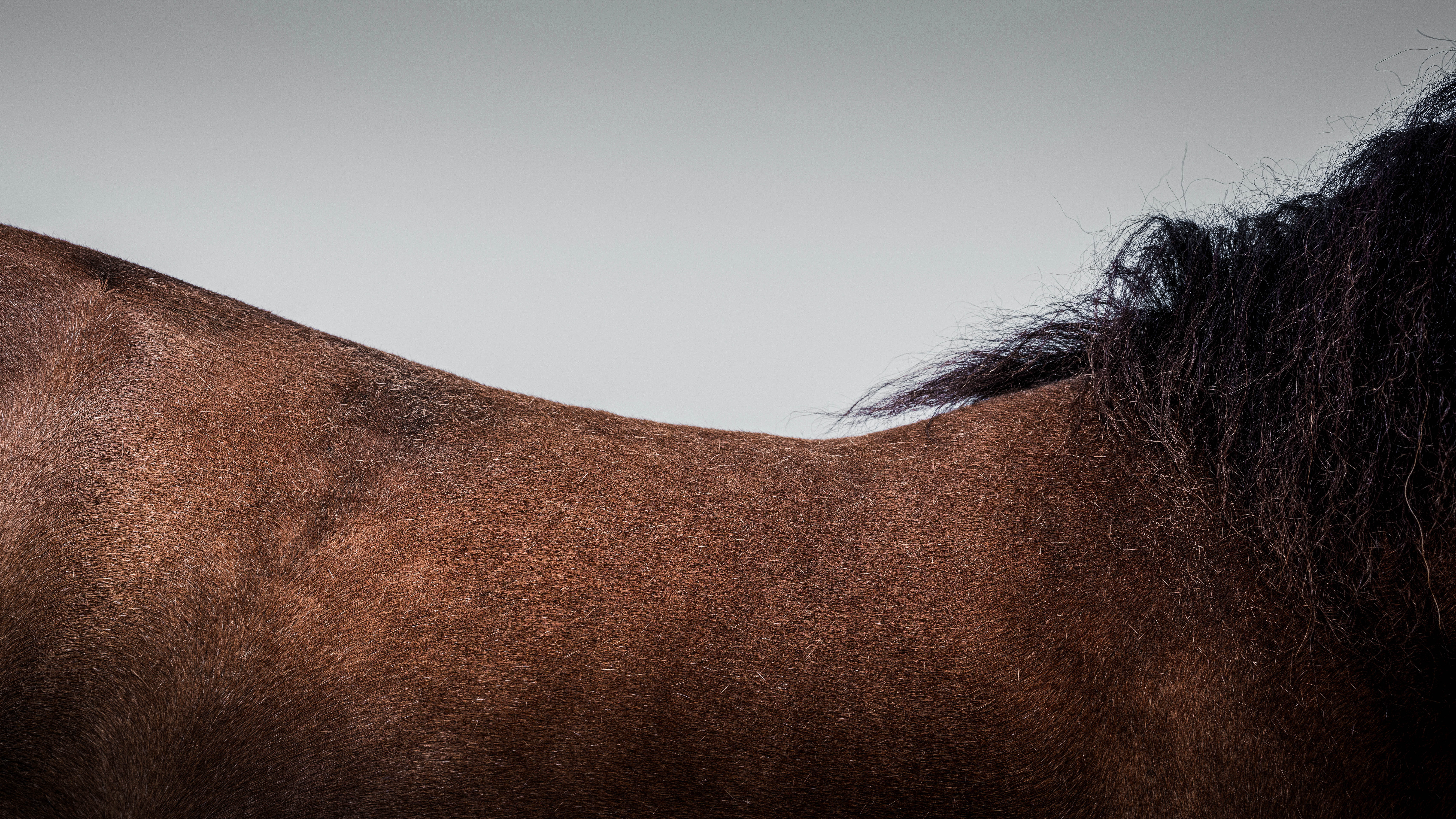Digital Camera World Verdict
This Manfrotto backpack offers four different access points to cameras and favored accessories. It works particularly well if you have two separate cameras to which you want quick access independently, with adjustable and removable Velcro-attaching padded dividers in both the main compartment and smaller top compartment. There’s also a compartment that can accommodate a 16-inch or smaller laptop. All in all, it’s a very versatile photo backpack.
Pros
- +
Four camera access points
- +
Can hold two separate camera kits
- +
Multiple carrying configurations
Cons
- -
Waist strap non-removable
- -
No baggage trolley strap
Why you can trust Digital Camera World
As the M in its title suggests, the Manfrotto PRO Light Multiloader Backpack M is a ‘medium’ sized photo backpack with a 26 liter capacity but it only comes in one size, so there aren’t any small or large versions available. It has no less than four access points at the top and front as well as the left and right hand sides, making it easy to grab your favorite bits of camera kit quickly and easily.
Specifications
External dimensions (WxDxH): 35.5 x 26 x 54 cm
Main camera compartment (WxDxH): 26 x 15.5 x 42 cm
Sizes options in range: Medium (26 litres)
Backpack type: Split photo/daypack
Camera access: Top, front, left, right
Laptop compartment: 16-inch
Tripod fastener: Yes
Chest / waist strap: Yes / Yes (tuck-away)
Baggage trolley strap: No
Rain-proof cover: Included
Weight: 2.16kg
Key features
With a generous amount of space in its upper compartment, the Manfrotto comes with Velcro dividers in both the main and top sections. This enables you to stow a camera with a modestly sized lens plus another couple lenses in the top compartment, and a second camera with attached lens and more photo goodies in the main lower section. What’s more you can access both cameras directly via top and side flaps, as well as getting full access to the main lower section from the front.
There’s the usual grab handle up top, plus a longer one on one side that you can also use as a baggage trolley strap. Both of the main shoulder straps are detachable, enabling you to configure the bag as a backpack, slingback or duffle bag. Tripod fastener straps and the waist strap tuck away when unneeded, making the bag more streamlined, although the waist strap isn’t completely removable.
A separate rear compartment is large enough to accommodate a 16-inch laptop and there’s an additional zippered pocket on the right hand side. The front flap and top flap feature small internal mesh pockets, and the front flap also has an external zippered pocket.
Performance
The backpack performs well in its standard configuration and you can also remove the divider between the main and top compartments, making one extra-large space. That can be a bonus if you’re shooting with a large super-telephoto lens. Build quality is very good and versatility is excellent. All in all, it’s a backpack that certainly lives up to its ‘Multiloader’ moniker.
Verdict
This Manfrotto backpack offers four different access points to cameras and favored accessories. It works particularly well if you have two separate cameras to which you want quick access independently, with adjustable and removable Velcro-attaching padded dividers in both the main compartment and smaller top compartment. There’s also a compartment that can accommodate a 16-inch or smaller laptop. All in all, it’s a very versatile photo backpack.
The best camera deals, reviews, product advice, and unmissable photography news, direct to your inbox!
Read more:
• Best messenger/shoulder bags
• Best camera backpacks
• Best camera sling bags
• Best camera holsters/pouches
• Best roller bags
• Best hard cases for camera kit
Matthew Richards is a photographer and journalist who has spent years using and reviewing all manner of photo gear. He is Digital Camera World's principal lens reviewer – and has tested more primes and zooms than most people have had hot dinners!
His expertise with equipment doesn’t end there, though. He is also an encyclopedia when it comes to all manner of cameras, camera holsters and bags, flashguns, tripods and heads, printers, papers and inks, and just about anything imaging-related.
In an earlier life he was a broadcast engineer at the BBC, as well as a former editor of PC Guide.
